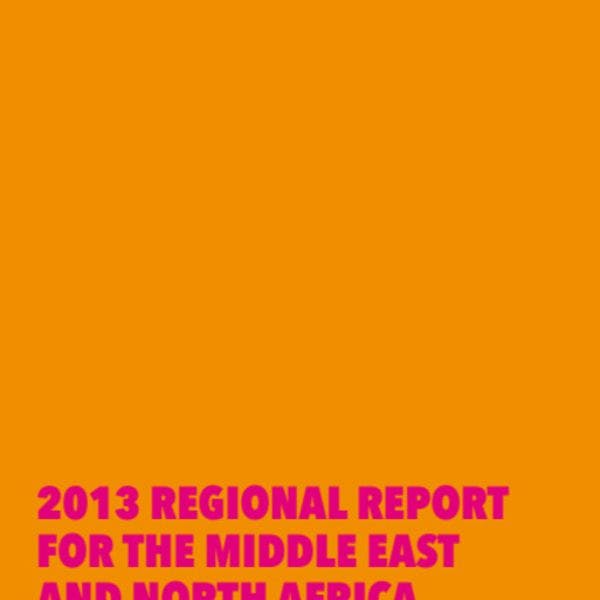2013 regional report for the Middle East and North Africa
By 2012, UNAIDS estimated that 270 000 people were living with HIV in the countries of the MENA region. With the exceptions of Djibouti and Somalia, the majority of HIV epidemics in this region, are concentrated among key populations at higher risk, typically among people who inject drugs, men who have sex with men and sex workers.
While understanding of the nature of the region’s HIV epidemics has increased, critical gaps still exist and need to be addressed.In recent years many countries have been affected by social and political unrest and conflict. Cumulatively, these have potentially serious implications for the region’s HIV epidemics. Not only do unrest and conflict disrupt implementation of prevention and advocacy programmes and interfere with service delivery (e.g. including distribution of anti-retroviral therapy), they can also create the kind of conditions and vulnerabilities that exacerbate HIV epidemics. While some countries are primarily affected by internal unrest, others are affected by the consequences of unrest within neighbouring countries.
Some, such as Egypt, are affected by both. Several countries have adapted their responses to HIV to reflect these new realities. Eleven countries undertook Mid-Term Reviews5and assessed their progress in relation to each of the ten targets. The table that follows this section demonstrates the extent to which each target has been identified as a priority, whether or not it is included in the national strategic plan and whether or not countries consider themselves to be on track to achieve the target. The overall tone in these self-assessments is one of optimism but for several targets this appears to be unwarranted.
As this report shows, some countries have made significant and impressive progress and achievements. However, in still too many countries, denial, stigma and discrimination appear to determine the nature of the response, in some cases even preventing gathering of the basic information necessary to plan appropriate responses.
Keep up-to-date with drug policy developments by subscribing to the IDPC Monthly Alert.
Topics
Regions
Related Profiles
- Joint United Nations Programme on HIV and AIDS (UNAIDS)
